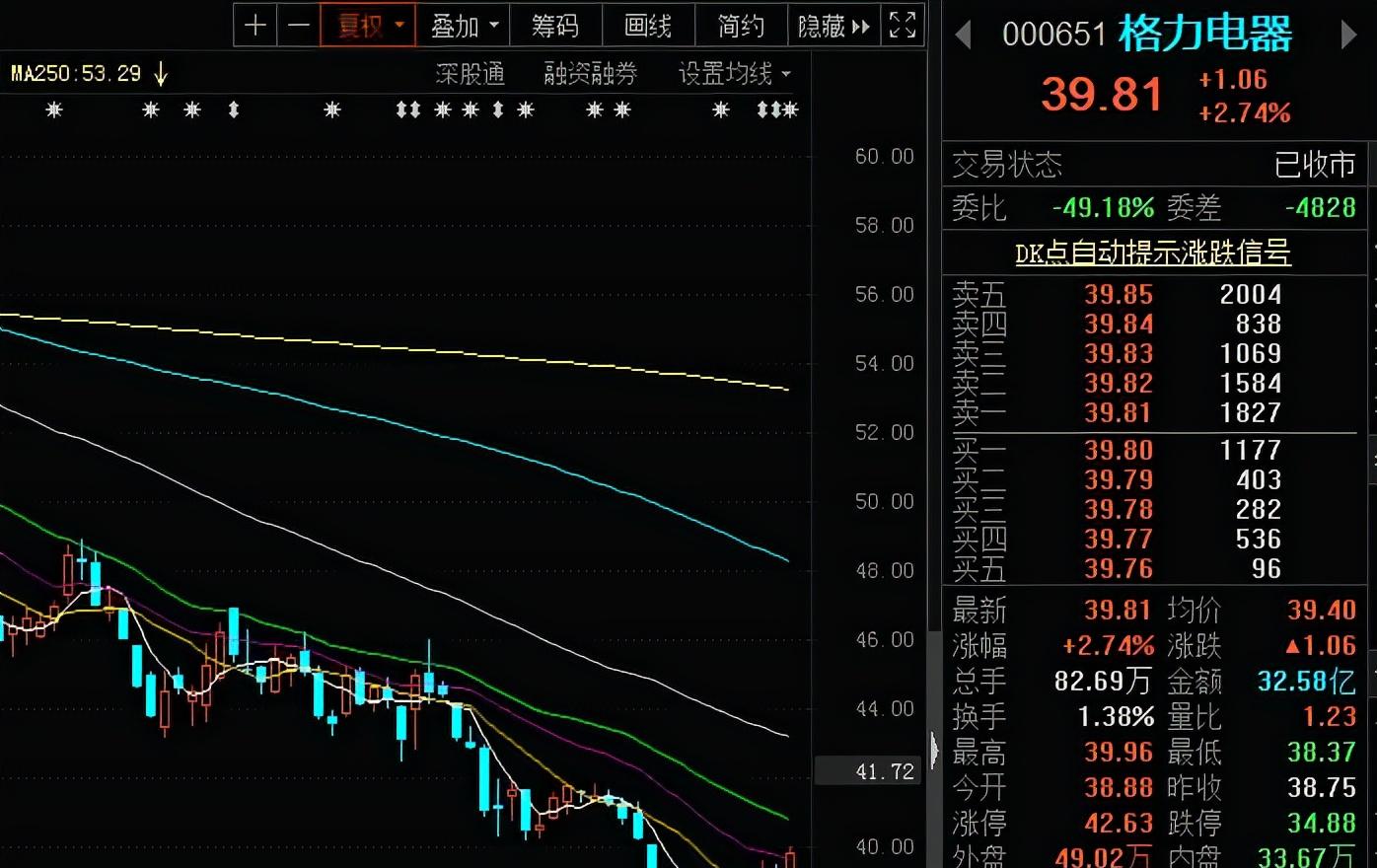On September 29, Gree Electric Appliances issued an announcement that in view of the fact that there is no specific plan to use the third phase of repurchased shares for employee stock ownership plans or equity incentives in the short term, it is planned to cancel 70% (that is, 221 million shares) of the purchased shares repurchased in the third phase to reduce the registered capital, and the remaining 30% of the repurchased shares will still be used to implement the employee stock ownership plan. It is worth noting that this is the second time that Gree Electric Appliance intends to cancel the repurchased shares in the near future.
Since 2020, Gree Electric has launched 3 rounds of share repurchase programs. Among them, the first phase began in April 2020 and was completed on February 24, 2021, costing 6 billion yuan. The second phase of the October 2020 disclosure plan, to be completed by May 18, 2021, also costs $6 billion to repurchase 101 million shares. The third phase of the plan was disclosed on May 26 this year, and was implemented by September 9, buying back 316 million shares at a cost of 15 billion yuan. Three repurchases before and after, with a cumulative cost of 27 billion yuan, Gree Electric Appliances has also become the "king of repurchase" of A shares.
From the perspective of the timeline, the three phases of share repurchase of Gree Electric Appliances can be called "intensive". The first phase has not yet been completed, that is, the second phase is launched, and the second phase has just been implemented, and the third phase will be started immediately. In particular, the third phase cost 15 billion yuan, which is also very rare among listed companies.
Gree Electric Appliances has launched share repurchases three times before and after, which is obviously inseparable from the downturn in its stock price trend. After the stock price of Gree Electric Appliances touched a historic high of 66.79 yuan in early December last year, it began its downward journey. Completely different from the previous strong rise, the adjustment time of the stock price of Gree Electric Appliances has been long, from the beginning of December last year to the present; the stock price has fallen sharply, with the largest decline of 43.94%, and there is no decent rebound during the period. In the same period, the stock price of another home appliance giant, Midea Group, also fell, but the performance of Midea Group was significantly stronger than that of Gree Electric Appliances.
In recent years, a number of listed companies have initiated share repurchases, but the repurchased shares are basically used for equity incentives or employee stock ownership plans. In fact, such a share repurchase is tantamount to locking in the repurchased shares for a period of time, such as shares used for equity incentives or employee stock ownership plans, which will eventually flow back to the secondary market. It has no impact on the total share capital of listed companies, nor will it have an impact on their performance.
Therefore, the share repurchase that really produces substantial benefits for the listed company is undoubtedly to cancel the repurchased shares. For example, after Gree Electric Appliances cancels 221 million shares, its total share capital will be reduced from 6.016 billion shares to 5.795 billion shares. Under the condition of unchanged net profit, the earnings per share will be increased, which in turn will increase the investment value of Gree Electric Appliances.
Of course, the attempt by Gree Electric to cancel 221 million shares is also another big move after its huge investment in repurchasing shares. However, although the listed company wants to boost the stock price by canceling the repurchase of shares, I personally believe that the follow-up trend of the stock price of Gree Electric Appliances will mainly depend on three aspects.

First of all, the performance of Gree Electric Appliances is growing. Performance is the basis for supporting the stock prices of listed companies. Guizhou Moutai can achieve the reputation of "the first high-priced stock" of A-shares, which is inseparable from its good performance in previous years. After the cancellation of 221 million shares, the total share capital of Gree Electric Appliances has become smaller, but if its performance declines, then even after the cancellation of shares, it will not be able to increase its earnings per share, and its supporting effect on the stock price will be invisibly weakened. If there is a substantial increase in performance, the situation is obviously different.
Second, the impact of the market environment. Unless there is particularly significant positive news, the rise and fall of any individual stock is inseparable from the market environment, such as a bull market, or a swing rebound market. In the past few years, the core asset stocks have risen strongly, mainly because such stocks are favored by market funds, and the market has therefore appeared institutional "group stocks", and its growth is not bad, and buying such stocks will even appear "lying to win" phenomenon. The emergence of the phenomenon of "lying to win" is inseparable from the market's speculation on core asset stocks at that time.
This time, whether the cancellation of shares can be recognized by institutional investors is also an important factor that cannot be ignored. When Gree Electric Appliances disclosed its huge share repurchase plan twice, it had a stimulating effect on its stock price in the short term, but since then the stock price has re-entered a steady decline. Since this is a cancellation of shares, and the proportion of total share capital is 3.67%, the attitude of institutional investors at this time will have a greater impact on their subsequent trends. In fact, although core asset stocks such as Guizhou Moutai have fallen this year, there are also individual stocks like catheter times that have risen strongly, and institutional investors have played a very important role.